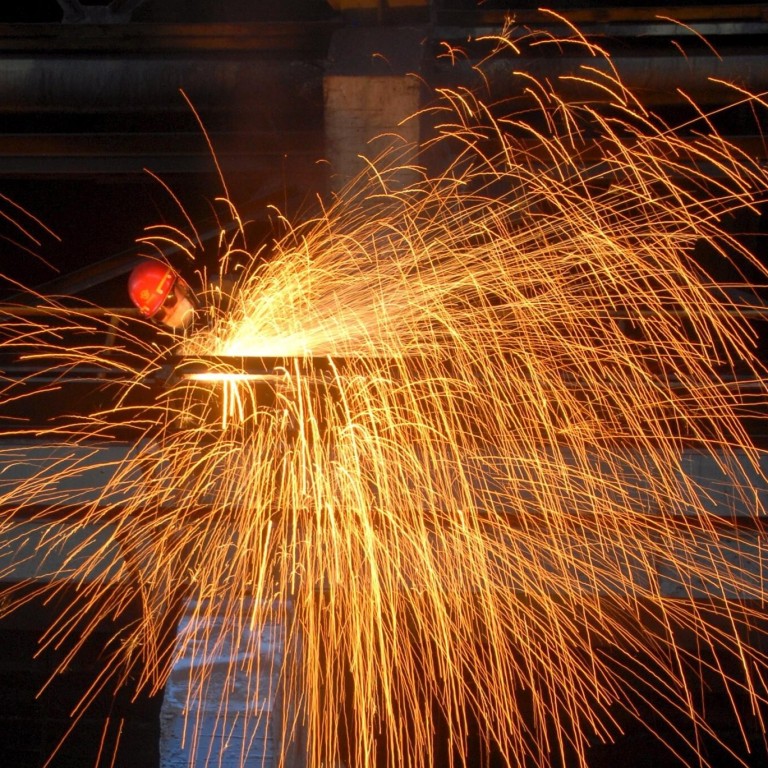
23 Chinese metal workers sickened by carbon monoxide in power blackout
- Power cuts across northeastern China add pressure to the region’s basic infrastructure
- Jilin city water supplier announces – and then deletes – statement that water outages will be ‘normal occurrences’ until March
About two dozen employees of a metalwork company in northeastern China were taken to hospital after a sudden power outage in a factory led to carbon monoxide poisoning.
The failure comes as the country’s northeast grapples with a series of power shortages brought on by high coal prices and a surge in demand.
This shut down the exhaust system of the factory’s two blast furnaces, resulting in 23 people inhaling carbon monoxide. All the affected workers are still being treated in hospital on Monday, according to state broadcaster China Central Television.
An employee at Penghui Zhuye’s marketing department declined to comment and phone calls to the company’s general office went unanswered.
An employee at the State Grid Corporation of China, the country’s biggest electricity utility, said power rationing in the northeast was imposed first on non-residential areas but this had failed to resolve the shortages, according to The Beijing News .
To prevent the entire power grid from “collapsing”, restrictions had been extended to residential consumers, the employee was quoted as saying.
Beijing power companies close to bankruptcy petition for price hikes
On Sunday, a water supplier in Jilin City, in northeastern Jilin province, announced on its public WeChat account that national and regional directives to restrict power use meant “irregular, unplanned and unannounced power outages will continue until March 2022”.
“Power outages and water outages will become normal, which will result in the inability of nine pumping stations to supply water normally,” Jilin City Xinbei Water Supply said.
“In this period, water cuts caused by the power outages will be frequent. It is hoped work units that use water and residents will make timely preparations for water storage [and] turn off taps when possible.”
However, the post was deleted soon after, according to local media reports.
On Monday, the company apologised for the previous day’s warning, calling it “improperly worded and its content inaccurate”.
China coal-fired power companies on the verge of bankruptcy petition Beijing to raise electricity prices
The Jilin and Liaoning provincial governments held meetings on Sunday to discuss the power outages. Wu Jinping, a member of the Jilin provincial Communist Party standing committee, said the provincial government should import more coal and arrange for the province’s coal mines to “safely unlock their production capacity”.
“It is necessary to formulate emergency plans to prevent the occurrence of systemic and regional long-term concentrated power outages,” Wu was quoted as saying in a provincial government statement.
The Liaoning government attributed the power outages to record levels of electricity consumption caused by rapid economic development, Liaoning Daily reported.
The provincial government also said on Sunday that since September 10, the province’s power supply had struggled to meet demand, and from Thursday to Saturday “due to the sudden reduction of wind power and other reasons, the power supply gap further increased to a serious level”, the report said.
“In order to prevent the collapse of the entire power grid, [the restrictions on] electricity use were extended to residents and enterprises that do not implement orderly electricity use measures.”

